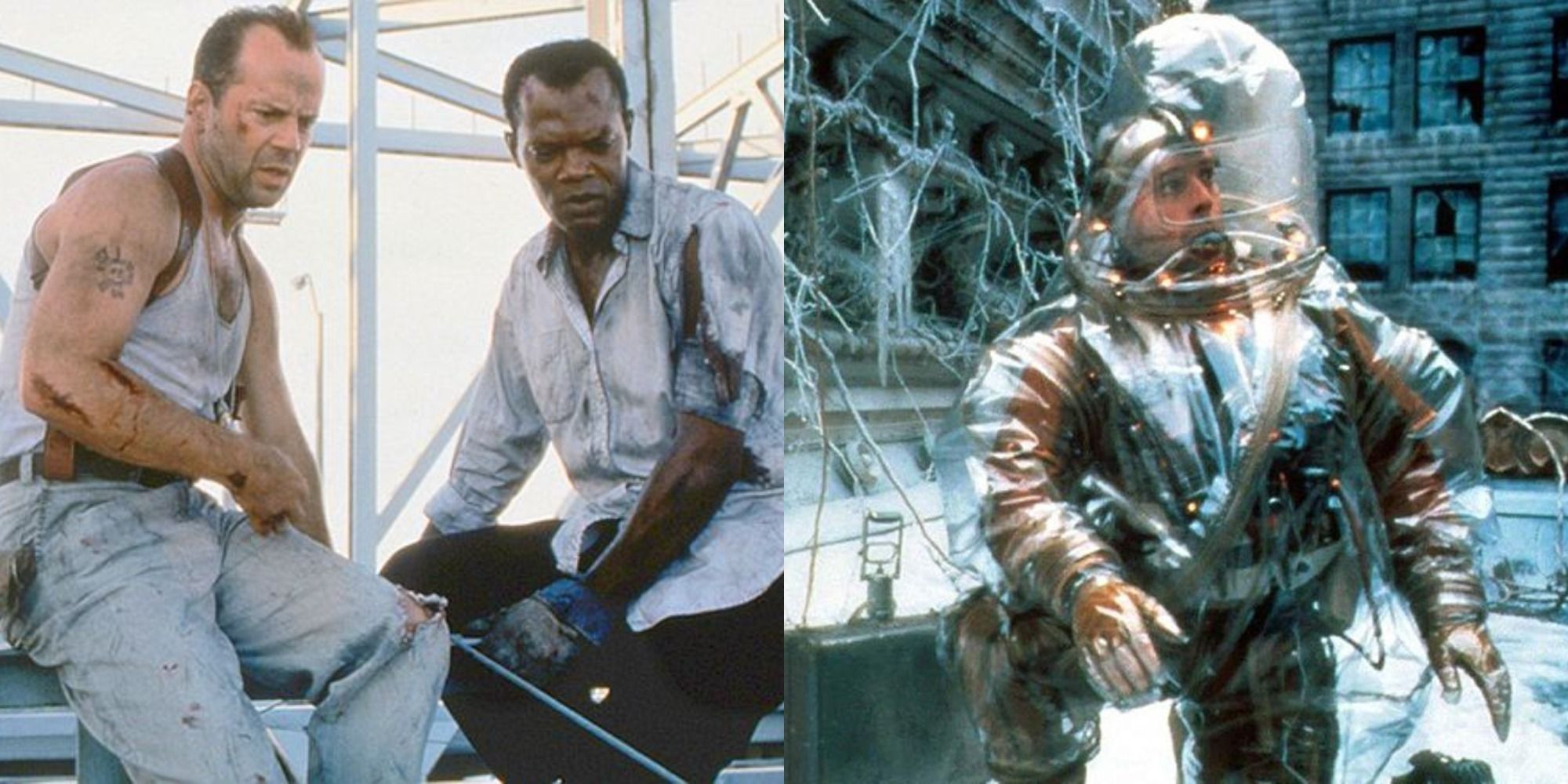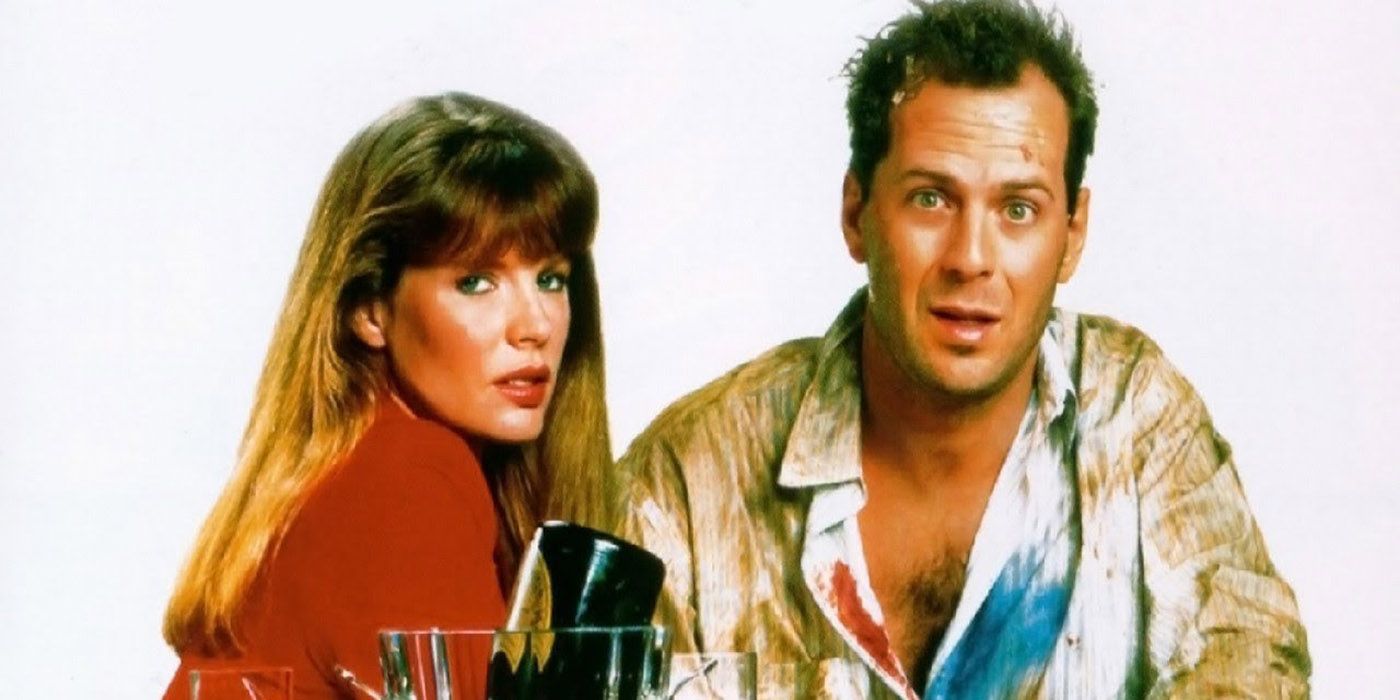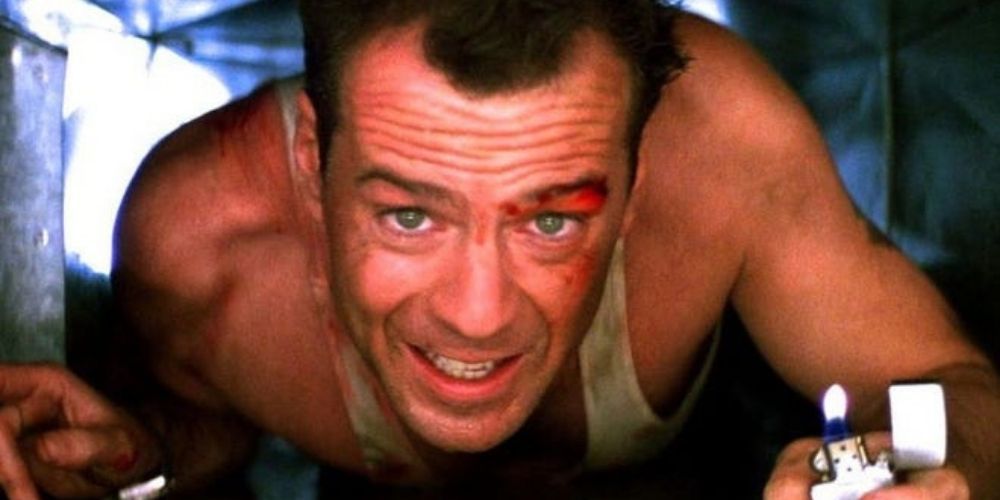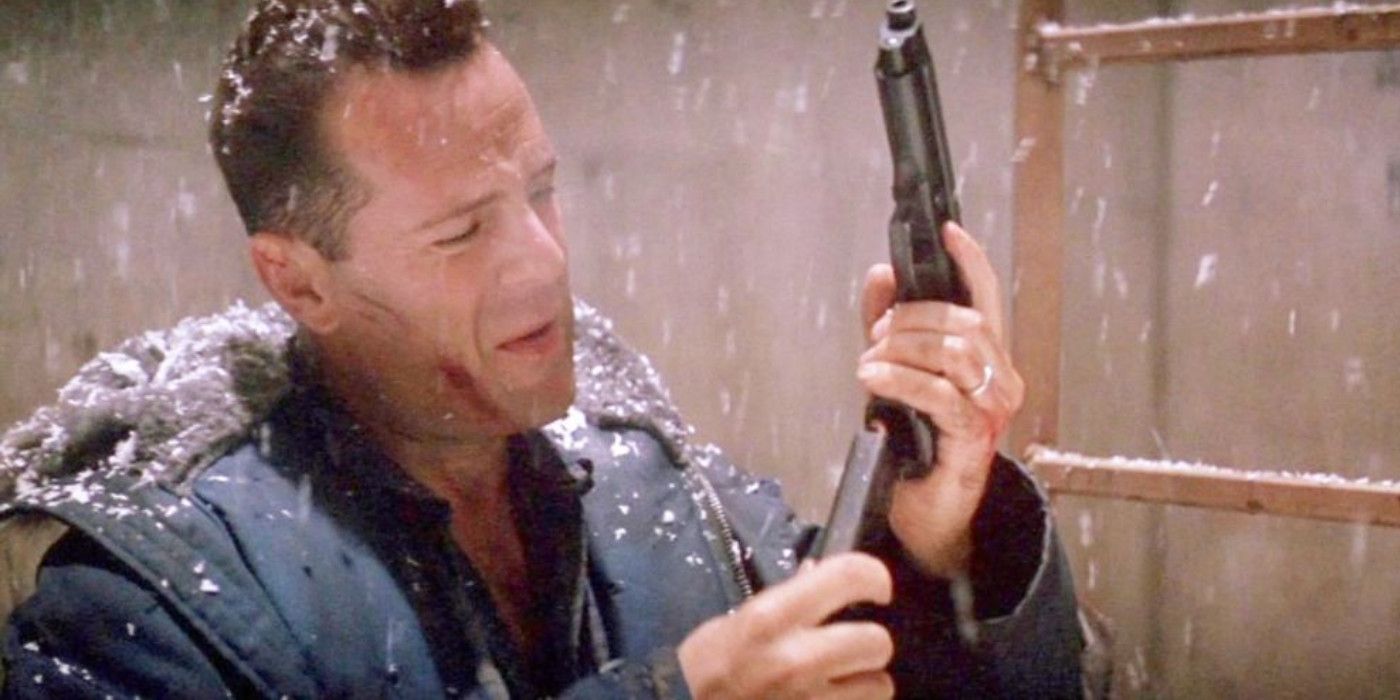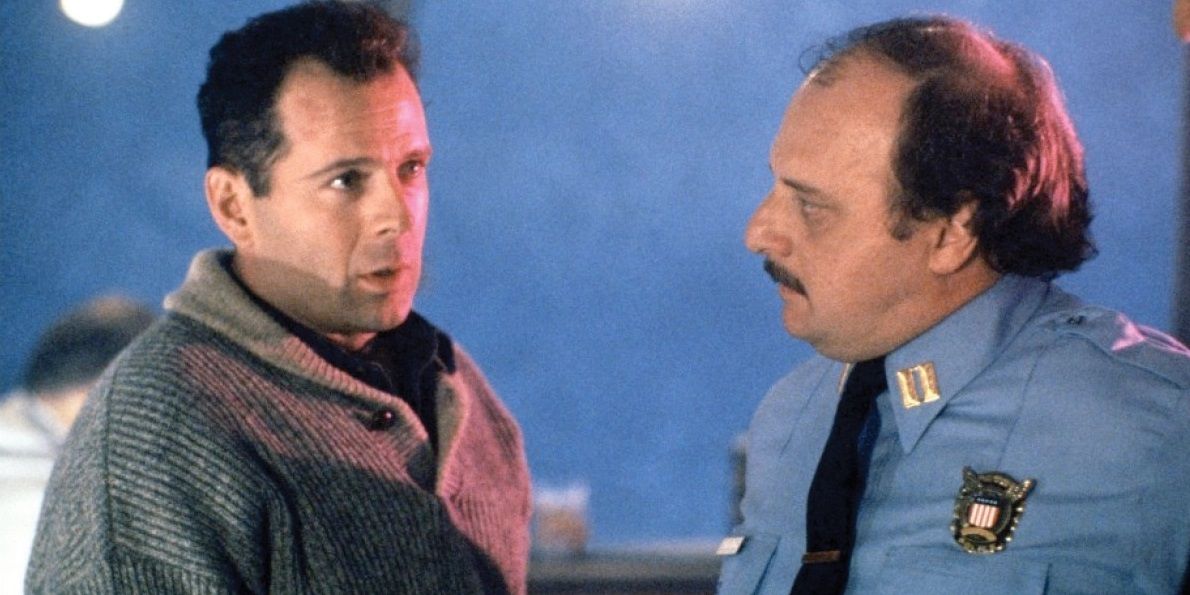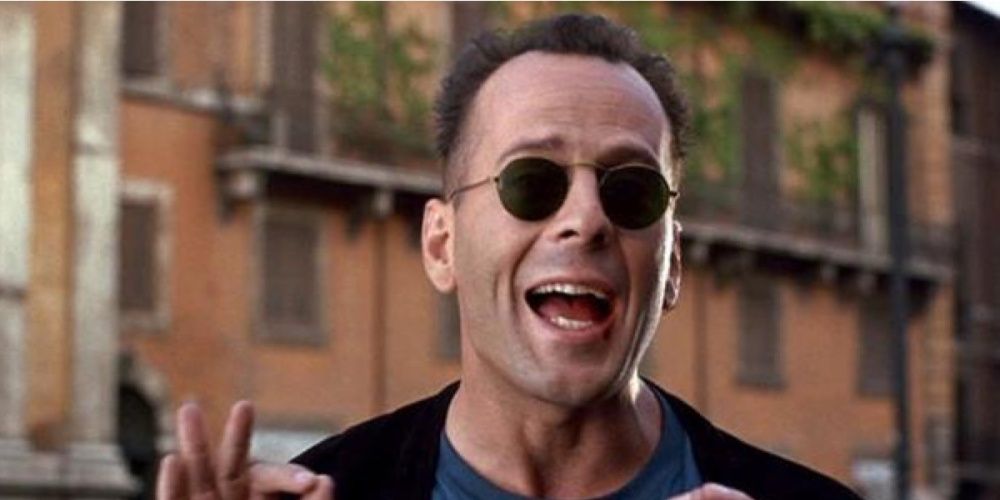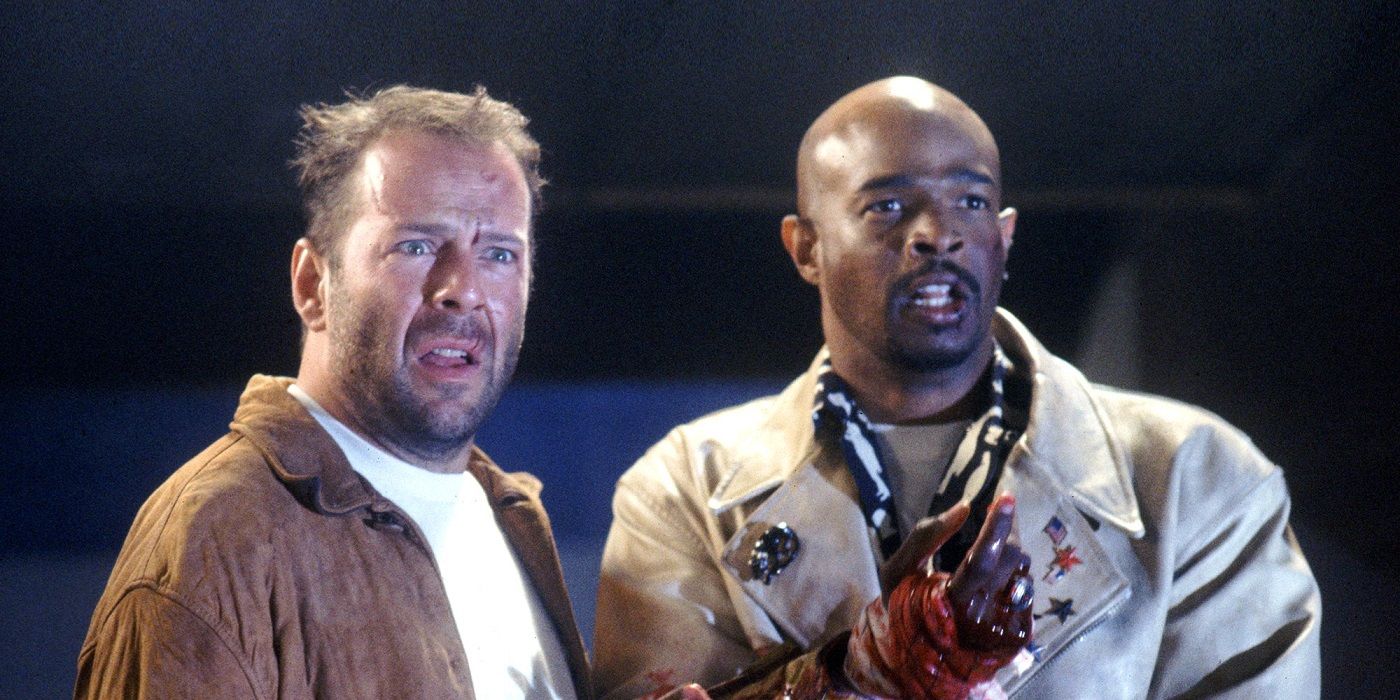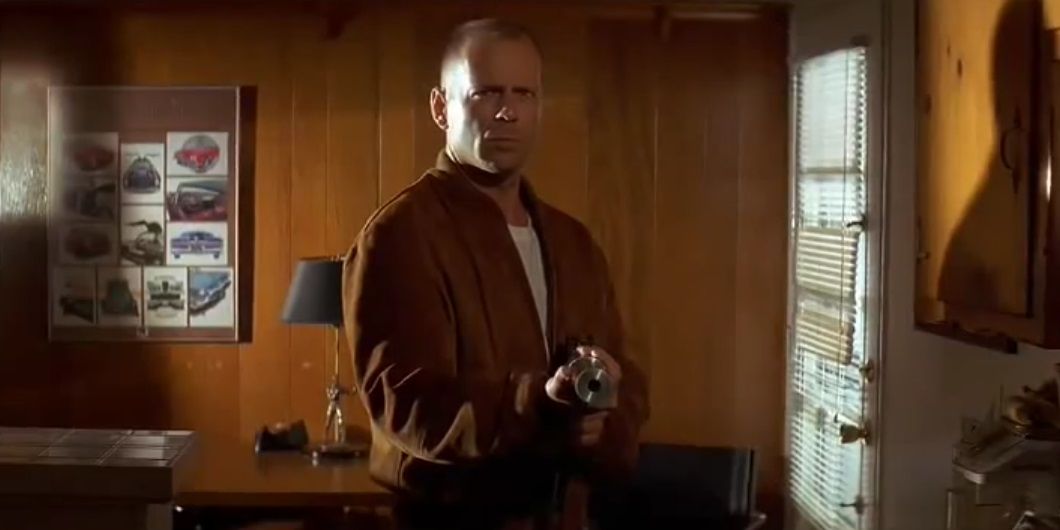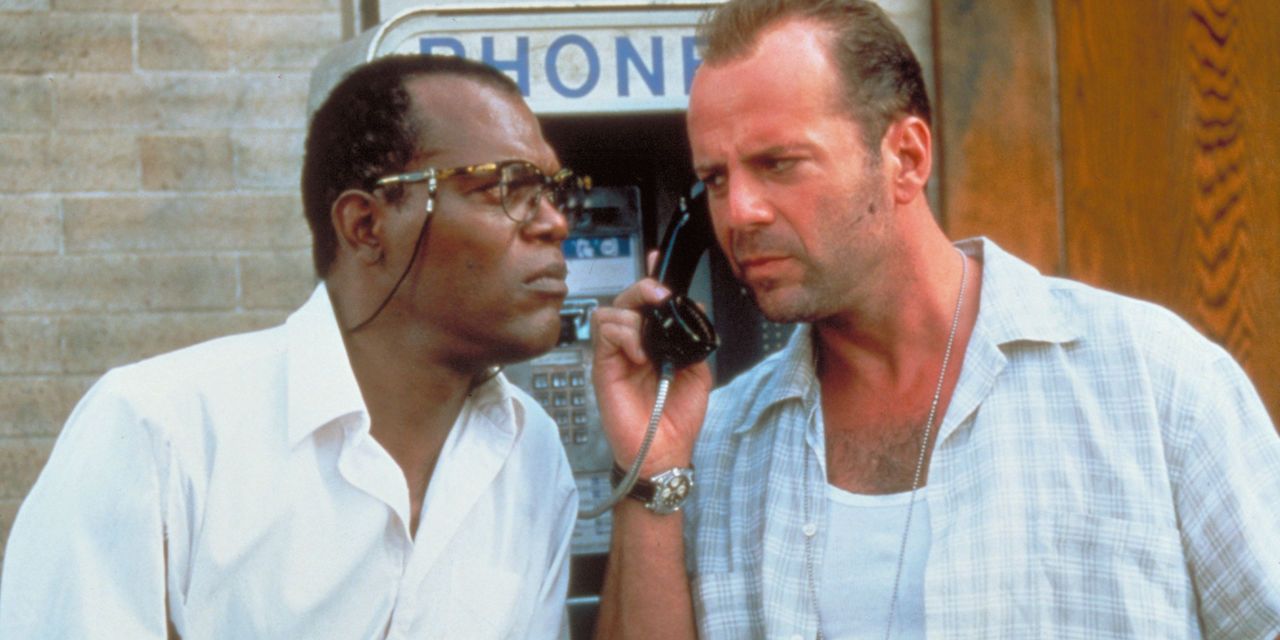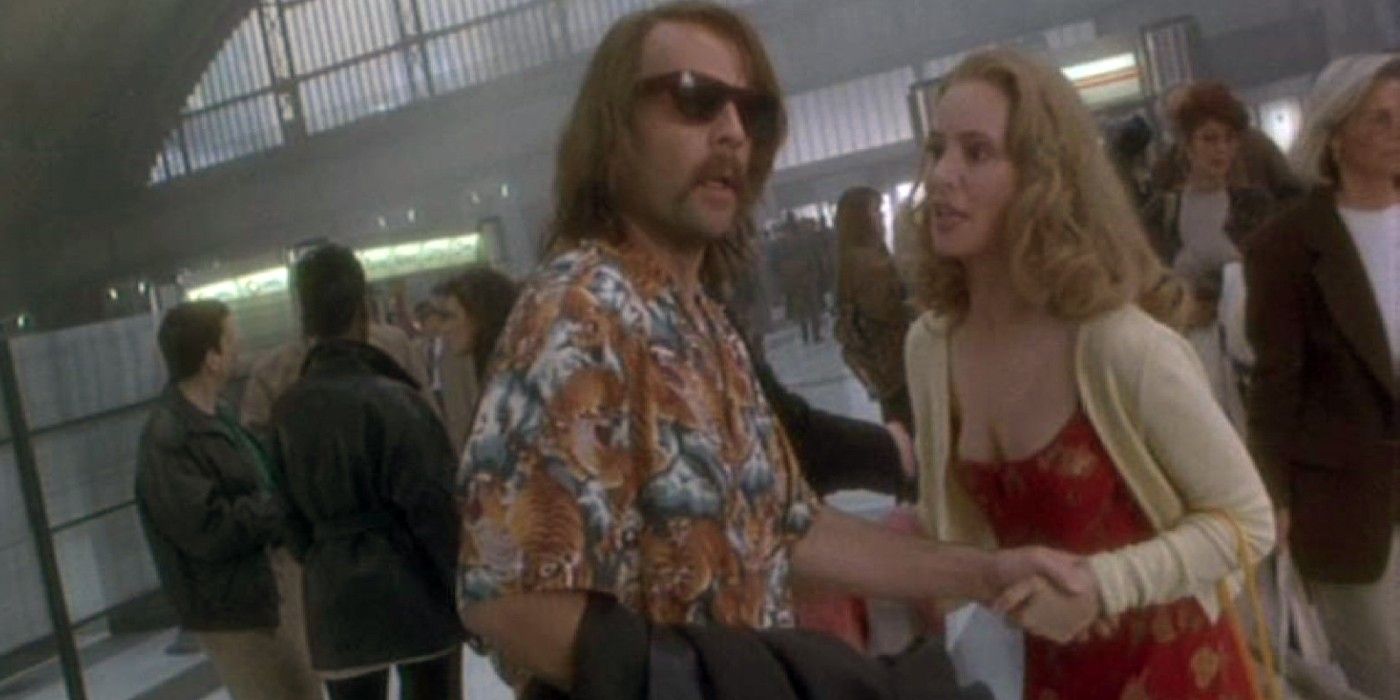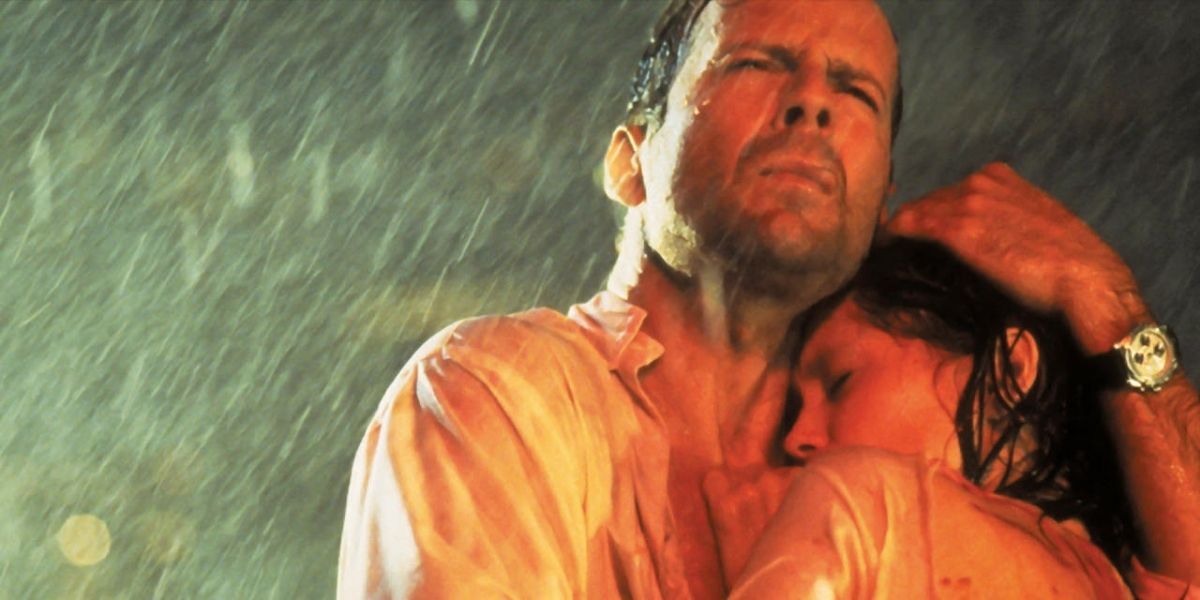Bruce Willis has starred in many, many films. Unfortunately, a lot of them have been made in the last 10 or 15 years, a period of time in which he has been sleepwalking through the majority of his roles. For the most part, this has been in the form of tired walk-on roles in Direct-to-DVD movies frequently seen in bargain bins.
There was a time, though, when Willis took big risks. With risk comes controversy, however, and there have been moments in Willis' films that would cross the line today. It's even debatable if some of Willis' most iconic characters would exist in today's world.
Blind Date: Techniques For Romance
The soon-to-be action hero's first lead role, Blind Date (1987), stars Willis as Walter Davis. When Walter's brother sets him up on a blind date with his sister-in-law, he essentially tells him to ply her with alcohol. Worse yet is the fact that the script had already established that Walter knows his blind date is probably an alcoholic.
A movie being made for modern audiences with a scene that makes light of both alcoholism and taking advantage of women seems as unlikely as it is ill-advised.
Die Hard: McClane, The Man
Could the rough-and-tumble cop John McClane, shooting terrorists in Nakatomi Plaza, exist in the world of 2021? The "one man who shoots first and asks questions later" type, doing whatever it takes to get the job done. Would he be written the same way in 2021 that he was in 1987?
Or, would he be changed? Perhaps written as a woman on the warpath to save her wife? There really is no telling, but with modern times' focus on shifting gender norms, the meat-and-potatoes John McClane doesn't have a clear place.
Die Hard 2: They're Blanks
Towards the end of Willis' second go-round as John McClane, he realizes that the weapons of his mercenary teammates are filled with blanks. After a narrow escape, McClane illustrates his point to some disbelieving police officers and air traffic controllers via a very loud live demonstration.
Within the enclosed room, he holds the machine gun in front of him and holds down the trigger, shooting blank after blank. In 2021, that kind of demonstration in a movie would probably prove controversial.
Die Hard 2: Overstock Character
Throughout Die Hard 2, McClane continuously finds himself under Captain Carmine Lorenzo's (Dennis Franz) incompetent lense.
Another character who's a thing of the past, Dennis Franz plays Captain Carmine Lorenzo like a cartoon character through and through. But, he's also a fairly awful, foul-mouthed man. It seems as though the days of scripts framing irresponsible policing as 'aw shucks' goofballery are over.
Hudson Hawk: Conspiracy Theories As Laughing Matter
A notorious disaster upon its initial release, there are a lot of things about Hudson Hawk that wouldn't be done today. Most of this is courtesy of a baffling tone that oscillates between extreme, overtly cartoonish action and starkly unfunny comedy.
A lot of the supposed comedy is aimed at conspiracy theories and secret societies. The issue is that, in 2021, those sorts of things aren't nearly as funny as they used to be.
The Last Boy Scout: Bechdel Test
A common problem in Shane Black's otherwise-terrific scripts, The Last Boy Scout basically just doesn't have women in it. When they are in it, they're disposable at best, and they're cheaters and liars at worst.
While the studio was pressuring all involved to follow up on the success of the first two Die Hard movies, the movie could have carried its man saves woman—or little girl, in this case—formula in a way that employed female characters with agency.
Pulp Fiction: Tarantino's Vocabulary
While art should never be censored, maybe there are just some words Caucasian people shouldn't say. In some of Tarantino's other films, he's gotten away with it. In Django Unchained, certain language made more contextual sense. In Pulp Fiction, there's no acceptable context.
Willis isn't the one to utter the word in this later scene—it's Tarantino himself—but it's still something that rips the viewer out of the experience. It certainly would feel out of place in a 2021 new release.
Die Hard With A Vengeance: The Sign
The third film in the Die Hard franchise finds Lieutenant McClane teaming up with Samuel L. Jackson's Zeus Carver to stop Simon, the brother of the first villain's film, Hans Gruber.
Thank goodness for Zeus, because the first round of Simon Says requires McClane to wear a sign in the middle of Harlem with a racial epithet on it. It's not a scene that would be in a modern motion picture, but it does kick off this 1995 threequel with a tense bang.
12 Monkeys: Viruses In General
While Covid-19 is a far cry from the world-ender featured in 12 Monkeys, it seems unlikely that studios will invest tens of millions of dollars on a movie about a virus any time soon—even if it were a well-received dive into the mind of Terry Gilliam featuring a stacked cast.
While 12 Monkeys doesn't offer the same realistic look at a major virus as, say, Contagion, even sci-fi movies featuring the subject matter may be off the table for the foreseeable future.
Color Of Night: Using Child Abuse As A Motive
Yet another in a long line of movies that tried to hop onto the success of Paul Verhoeven's excellent Basic Instinct, this Willis vehicle tossed him into a murder/steamy romance plot with a few too many turns.
Of note is how, when the killer is revealed, the motive is more or less thrown on him having been abused as a child. It's one of many films that view mental health issues with a far too narrow lens. In the end, Color of Night isn't subversive or brilliant; it's just a flop, a Razzie "winner," and a movie even Willis himself couldn't care less about.

